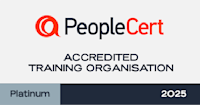Critical DevOps Skills
What are some critical DevOps skills you need to build? We cover some technical, project, and people skills that could play a role in your success.
Coding skills: DevOps engineers must build their coding skills to participate in software development tasks, from writing to reviewing and improving applications. You can do this with different programming languages, like Java, Python or Ruby. Knowing Linux Command Line Interface (CLI) is another important skill. An aspiring DevOps engineer needs to understand Linux shell (bash or ksh), Linux commands (find, grep, awk, sed), and Networking commands (nslookup and netstat).
Source code management skills: DevOps engineers should also master source code management to keep their projects organised despite having many code sets. Standard source code management tools include Git, CVS, and Mercurial.
Application building skills: One must learn how to build an application while committing to the source code management tool. Maven is a popular automation tool for quickly building and managing software projects.
Automation skills: DevOps engineers need to know CI/CD tools. Some available CI/CD tools are Jenkins, TeamCity, and Drone. Projects often require that you first build a project object model (POM) file before building an application. The POM file comprises jars, commands, builds plugins, and builds profiles.
App testing skills: Upon completing the build process, you need to learn how to automate web applications testing. A tool often used for this is Selenium.
Application deployment skills: After testing comes the process of deploying the app and running it on the production server. DevOps engineers should know the relevant containers and configuration management tools.
Project management skills: These enable DevOps engineers to initiate, plan, and execute DevOps projects. Your project management skills ensure tasks are completed on time and within budget to keep the company's software up to date and secure. Popular project management methodologies include PRINCE2, Agile Project Management, Scrum, and PMBOK. You can select the method most suited to your working environment.
Communication skills: DevOps projects involve development and IT operations teams, so you rely on your skills in facilitation, presentation, technical writing, and business writing to provide instructions and updates to your teams. Communication is essential when coordinating with clients and stakeholders. Listening skills are equally important when gathering team feedback.
Coaching and people management skills: A practical DevOps engineer sees the balance of technology, people, and processes. They work with people and seek opportunities to mentor and improve the team's skills. Working on many DevOps projects will give you experience spotting where processes need to be improved and where there are skill gaps within the team. Based on these, knowing how to provide training and coaching support can significantly boost your success rates.





